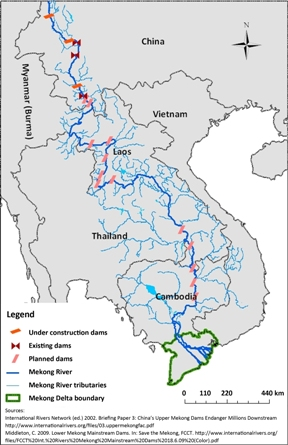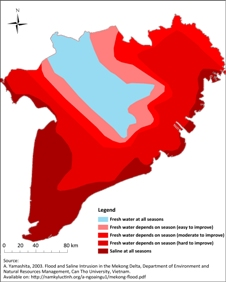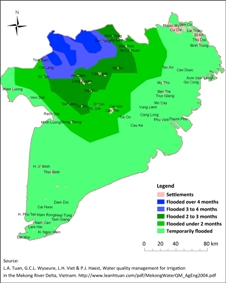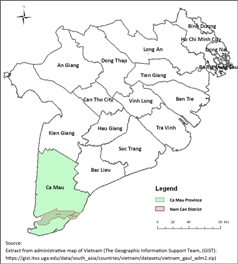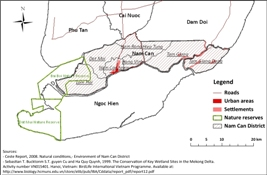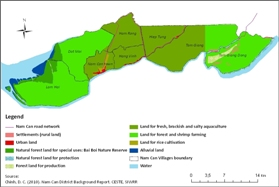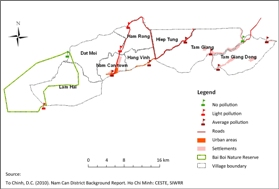ESPA - Mekong River Basin
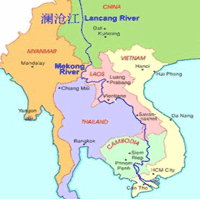
Environmental Security in the Mekong River Basin
The environmental and closely related water and food security of Vietnam, a partner country of the Dutch government in terms of development cooperation, is highly dependent upon the management of the Mekong River Basin as a whole.
Building upon the experiences of the previous case-studies in Indonesia, Colombia, the African Great Lakes region, DR Congo and the Horn of Africa, this study focuses on the Mekong Delta of Vietnam, within the context of the larger Mekong River Basin.
Vietnam is located at the mouth of the Mekong with the densely populated delta as the main area of rice production and fisheries. Upstream development on the Mekong River and its tributaries has very serious impacts upon quantity, variability and quality of the water Vietnam receives as well as upon migratory fish species.
Using data from satellites and local partners, deforestation, land use, pollution and infrastructure development are monitored, mapped and analysed with respect to their impact on the ecology and food security of the delta. The situation has also been interpreted in terms of applicable international (environmental) law and the relevant institutional settings. Recommendations on how to achieve sustainable solutions have been formulated, in close consultation with local stakeholders.
Report
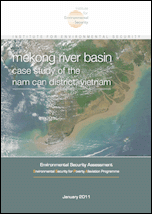 | 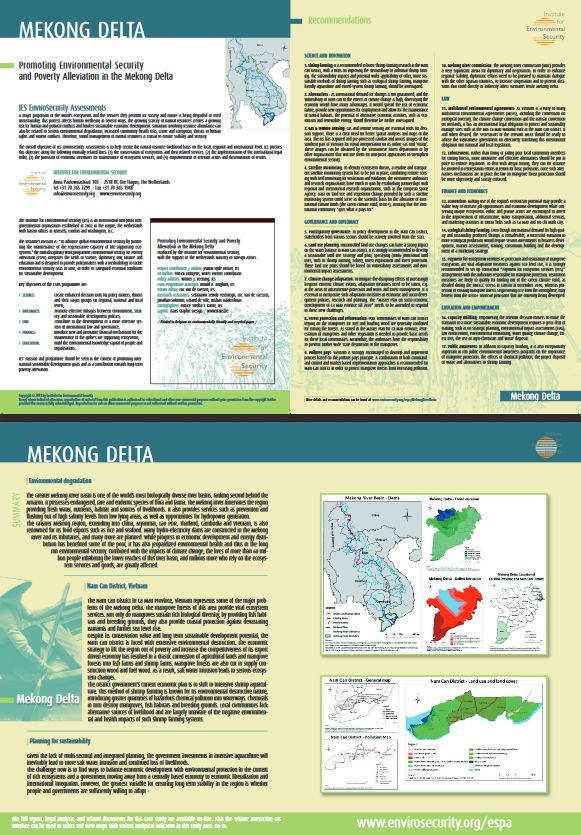 |
Environmental Security Assessment Mekong River Basin - case study of the Nam Can District, Vietnam; January 2011 (PDF – 14.3 MB) | Case Study Poster (PDF – 3.0 MB) Contact us to request a printed copies of this poster |
Maps
Related Links
![]() Organisations
Organisations![]() Initiatives
Initiatives![]() Publications
Publications![]() Web Resources
Web Resources
